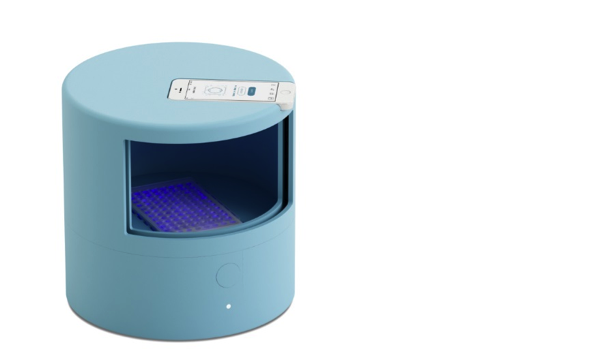This low-cost device only needs a small blood sample to detect multiple forms of cancer.
Early detection is the best cure for cancer—at least for now. That's why a handful of research teams around the world are making simpler, non-invasive, blood-based cancer tests that could detect the condition before it’s too late.
miRNA and Cancer
Scientists are looking at different biomarkers present in circulating blood to detect cancer. One of the most promising is microRNA (miRNA). These are single-stranded molecules that regulate gene expression in cellular processes. According to a study in the The Journal of Pathology, miRNAs hold great potential in diagnosing cancer because of their:
- critical role in tumor formation and metastasis as indicated in over 3,000 publications
- dysregulation seen in many malignancies
- disease-specific expression
Distinct Cancer Profiling By ‘Miriam’
Researchers have discovered that cancer tissues have unique miRNA profiles. Analyzing miRNA allows universal testing for multiple cancer types. This advantage of miRNA profiling is the basis of a new product by startup Miroculus called Miriam.
Miriam is a $500, 3D-printed cylindrical device that can detect multiple types of cancer in just under an hour using a tiny sample of blood.
Blood is pipetted into a 96-well plate pre-treated with the company’s patented biochemistry to trap miRNA. The plate is then put inside the device which initiates an hour-long reaction where the wells with the greatest miRNA concentration glow green. The device is then hooked up to a smartphone which records the fluorescence pattern of the plate and sends the results to the cloud. A database analyzes the types and patterns of miRNA from each sample and matches it to a specific type of cancer.
Credit: YouTube
One caveat, though. Non-cancer conditions can also yield miRNA molecules. But with more data in upcoming trials, the Miriam device could get more accurate and specific.
Game Changer?
Current diagnostic tools for cancer are expensive, intrusive and time-consuming. Miroculus says that with their low-cost device, they are trying “to make cancer and metabolic disease diagnosis, prognosis and prediction of drug response at a molecular level easier, cheaper, smarter and more accessible than ever before. You don’t need to wait until you have any symptoms, you don’t need to know which disease you are looking for, you only need 1 milliliter of blood and a relatively simple array of tools.”
When the company presented the device during the TEDGlobal 2014 conference in Rio De Janeiro recently, TED curator Chris Anderson called it “one of the most thrilling demos in TED history,” according to Wired.

Credit: Miroculus <http://miroculus.com/> . Used with permission.
Miroculus—founded by an international team of scientists and entrepreneurs who met at Singularity University—wants their device to become widely available around the world, including developing countries where resources are scarce. They envision healthcare workers with minimal training regularly using the simple and affordable device to conduct regular cancer screenings.
The company is also making the whole design of the device open source. “Cancer detection should be democratized,” co-founder Jorge Soto said during the presentation in Rio, according to a TED blog post.
Soto and his colleagues have used the Miriam device to successfully identify pancreatic, breast and lung cancer in humans. In the future they plan to apply the technology to diagnose other diseases.
Muneesh Tewari, a member of the research team that first discovered microRNA in blood, told Wired that novel technologies that aim for early detection of cancer could also lead to overdiagnosis and overtreatment. Nevertheless, he acknowledges the potential of Miriam and similar devices.
Transformative Digital Health
“The idea of having a system that really performs well, that’s very robust and can be done at the point of care, without an expert,” Tewari told Wired. “That idea is very powerful, and important, and could really be potentially transformative.”
Transformative digital health technologies can be particularly helpful to the developing world where—due to poor early screening—deaths from cancer are expected to reach 6.7 million in 2015 and 8.9 million by 2030. With the development of applications such as Miriam, hopefully we can lower the rates of such predictions.
Jof Enriquez is a registered nurse, medical writer and healthcare journalist. You can follow him on Twitter @jofenriq.

